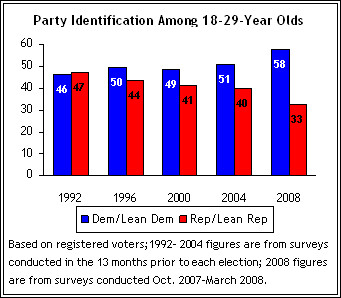We come from all walks of life. Some of us are students, some are workers, and some are jobless. Some of us are laden with student debt. Some of us work to support our children, some work to support our parents. Some of us have had to postpone starting a family, and some of us have had to move back in with our parents just to make ends meet. But we all have one thing in common — we are the young voters of California. And it’s time for us to flex our muscle at the polls, take control of California’s future and fight off the right wing’s attempt at a hostile corporate takeover of our state.
Our generation has been hit disproportionately hard by the recession. According to a recent report from the AFL-CIO, a third of all adults under age 35 cannot pay their bills, and 70 percent don’t have enough saved to cover even two months of living expenses. We just can’t afford to sit back and wait for things to get better, because if corporate candidates like Meg Whitman and Carly Fiorina triumph on Tuesday, things will undoubtedly get worse.
These Wall Street candidates have spent hundreds of millions in order to buy this election, and if elected, they plan on doling out massive tax breaks to the wealthiest individuals and corporations in California, while at the same time slashing the vital services, education, health care, unemployment benefits, civil liberties and much-needed jobs for young people trying to enter the workforce.
So what’s at stake in this election?
Our jobs. Both Whitman and Fiorina have extensive track records of outsourcing tens of thousands of jobs as corporate CEOs, and Whitman’s plan for California centers around laying off 40,000 state workers, which could cause our unemployment rate to jump a full percentage point. Whitman also believes in the categorically untrue concept that giving tax breaks to the rich will somehow create jobs. It didn’t work when Bush did it, and economists agree that the concept is totally bogus.
Our education. Meg Whitman plans to cut another $15 billion from the state budget, and nearly half of the budget goes to K-12 and higher education, which would inevitably mean more draconian cuts to schools and universities that have already been decimated under Schwarzenegger.
Our health care. Carly Fiorina vowed to repeal the new health care law that has allowed so many of us to go back on our parents’ health insurance while we finish school and look for work in this tough job market.
We can’t allow these extreme right-wing candidates to trample all over our generation. We’ve got to take matters into our own hands, and the best way we can do that is to hit the polls en masse on Tuesday, just like we did in 2008. Let’s not forget, it was the young people – both voters and volunteers — who secured Obama’s triumphant victory. And we have the power to do it again, if we commit to vote and getting others out to vote as well. As the President said last week to more than 37,000 Californians at a rally at the University of Southern California:
You’ve got to talk to your friends. You’ve got to talk to your neighbors. You’ve got to make phone calls. You’ve got to knock on doors. You have to make sure that you are as fired up and as excited now as you were two years ago – because the work is not yet done.
If you’re like me, you’re sick of the tired rhetoric from the media that young people just don’t vote as often as older adults. It seems like that message has become a self-fulfilling prophecy – many young people mistakenly feel like their votes don’t count as much, and subsequently they’re less inclined to vote.
But with an election as close as this one, our votes are more valuable today than ever before. If we do the expected and stay home on Election Day, we’re essentially handing the reins over to the mega-wealthy corporate shills whose Big Business agenda will make their super-rich friends even richer, while the rest of us are left fighting for the crumbs. It’s on every single one of us to vote, and do everything we can to get out the vote to our friends, family, co-workers, classmates and neighbors.
Writer Mike Hardcastle said it best:
Don't vote and you effectively kiss away your ability to have any influence as to how the issues play out in your world, and dude, that's just lame.

